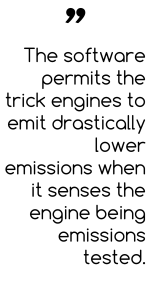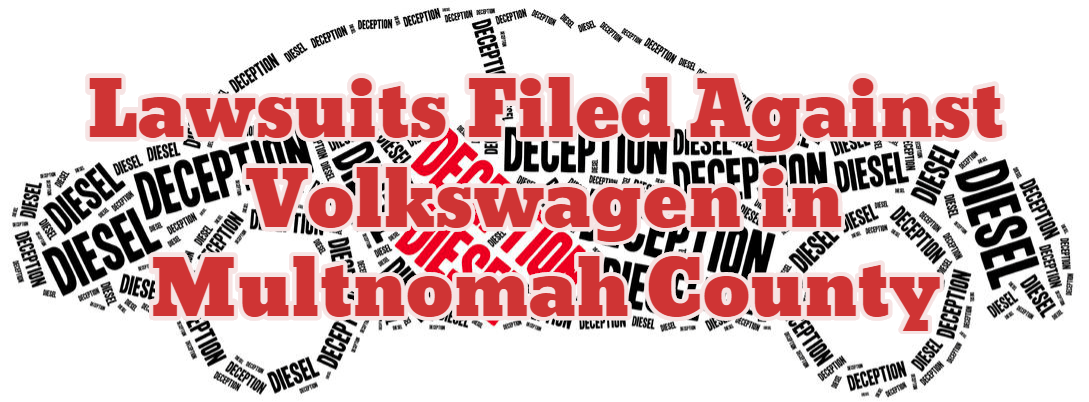Consumer protection attorney Tim Quenelle has filed six lawsuits from ten plaintiffs seeking a total of $150,000 in damages against Volkswagen Group of America in Multnomah County, Oregon. The lawsuits allege that Volkswagen programmed its “clean diesel” engines with sophisticated defeat software to fool emissions testing devices. Vehicles with those “clean diesel” engines carry a premium of $1,000 to nearly $7,000 more than other vehicles.
 Along with other data, the defeat software detects steering and throttle input and changes fuel pressure, timing of ignition and circulation of exhaust fumes. The software permits the trick engines to emit drastically lower emissions when it senses the engine being emissions tested. Once they’ve completed testing and are back out on the road, the vehicles emit up to 40 times more contamination than permitted by law. The CEO of Volkswagen Group of America admitted to the installation of the software and being “dishonest.” About 500,000 Volkswagens made between 2009 and 2015 driven in the United States with 2.0-liter turbo-diesel engines have the software. Volkswagen says all of the affected vehicles are technically safe.
Along with other data, the defeat software detects steering and throttle input and changes fuel pressure, timing of ignition and circulation of exhaust fumes. The software permits the trick engines to emit drastically lower emissions when it senses the engine being emissions tested. Once they’ve completed testing and are back out on the road, the vehicles emit up to 40 times more contamination than permitted by law. The CEO of Volkswagen Group of America admitted to the installation of the software and being “dishonest.” About 500,000 Volkswagens made between 2009 and 2015 driven in the United States with 2.0-liter turbo-diesel engines have the software. Volkswagen says all of the affected vehicles are technically safe.
As damages, the plaintiffs in the Multnomah County lawsuits are claiming overpayment for the vehicles and diminished resale value. Other damages questions will arise on performance of the affected vehicles after the emissions compliance issues are remedied. At the moment, some of the vehicles might even be illegal to drive in certain states. Some people say that they never would have bought their vehicles if they’d have known of the defeat devices.
When the engines at issue will be fixed remains unclear. There are actually three types of the 2.0-liter turbo-diesel engines, and none of them appear to have the same fix. Some will involve software, and others involve hardware. Since some engines will never be in compliance with the emissions standards of some states, Volkswagen might be required to buy back about 100,000 vehicles
Volkswagen has set aside $7 billion and earmarked it for recalls, but it acknowledges that it might need more. To start 2016, the manufacturer was sued by the U.S. Department of Justice, and it could be fined as much as $37,500 per vehicle. Owners of the engines at issue continue to drive their vehicles. It’s too early to see how their damages issues will be resolved.


